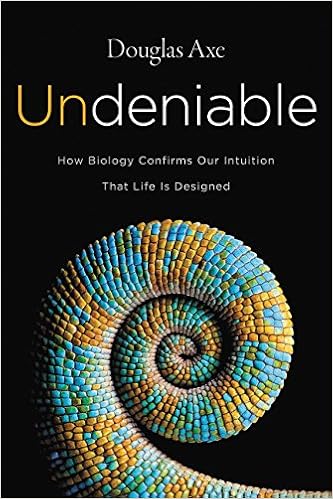 From Douglas Axe, author of Undeniable, at Evolution News & Views :
From Douglas Axe, author of Undeniable, at Evolution News & Views :
Much of my book is devoted to developing an argument around everyday experience and common sense, a combination I refer to as common science. It seems to me that Darwin’s thinking is quite vulnerable to refutation by common science. After all, selection doesn’t really make anything. It merely chooses among things that have already been made. That’s what the word means. The only kind of selection that gives you clams or snails is the kind you do while ordering dinner at a French restaurant.
[Critic] Sharma dismisses such thoughts as childish “pre-theoretical” thinking.
One of my book’s themes is that we adults shy away from common-science deductions like that for the wrong reasons. Fearing that smart people couldn’t possibly have overlooked such obvious facts for so long, we tend to assume they must know something the rest of us don’t. More.
Let’s distinguish between “smart people” and “intellectuals” (people whose currency is mere ideas).
Anyone can be deceived; even smart people are sometimes deceived. But intellectuals are better than most of us at arguing away the obvious. Many political disasters, costing million of lives, have resulted from this fact.
On a trivial level, intellectuals may believe that chimpanzees are entering the Stone Age or that we need to get rid of the standard of falsifiability so as to make the multiverse – a concept they need – science. Or that the government should prosecute skeptics of their hysteria du jour.
Most of us are best off with: When in doubt, doubt. If it sounds unbelievable, don’t believe it.
See also: From Undeniable, “the vague language of prejudice”
Video: Doug Axe presents the thesis of his new (and fast-selling) book, Undeniable
Doug Axe’s Undeniable: The trailer
Follow UD News at Twitter!